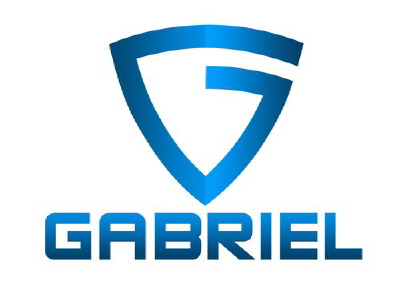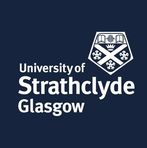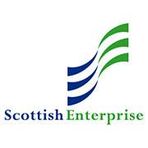AI Revolutionizes Pediatric Sleep: Seluna Targets Childhood Sleep Apnea with £650K Investment
August 29, 2025, 3:33 pm

Location: Israel, Tel Aviv District, Tel Aviv

Location: United States, Delaware, Glasgow
Employees: 1001-5000
Founded date: 1964
Total raised: $21.91M

Location: United Kingdom, Scotland, Glasgow
Employees: 1001-5000
Founded date: 1991
Seluna, a Scottish MedTech, secured significant funding for its AI-powered diagnostic tool. A major clinical study is underway in Glasgow. This initiative targets pediatric sleep disorders, notably childhood sleep apnea. The innovative SaMD offers faster, more accurate detection. It tackles an enormous, globally underserved market of 96 million children. Seluna's explainable AI streamlines diagnosis, reduces manual burden, and aims for personalized treatment. UK and US market approvals are targeted for 2026-2027, promising a new standard in pediatric healthcare worldwide. This transforms diagnostic approaches.
Childhood sleep disorders represent a critical global health challenge. Millions of children worldwide suffer silently. An estimated 96 million children are affected by various sleep disturbances. A staggering 80% of these cases, particularly sleep apnea, remain undiagnosed. This creates a severe diagnostic bottleneck within healthcare systems. Pediatric sleep apnea, if untreated, can lead to significant developmental and health complications. Early, accurate diagnosis is paramount for effective intervention.
Current diagnostic methods are antiquated. They rely heavily on manual interpretation of complex sleep study data. This process is inherently slow. It is labor-intensive. Such inefficiency creates immense pressure on clinical staff. It strains already overburdened healthcare resources. Children face extended wait lists for crucial evaluations. The lack of precise physiological insights also complicates treatment decisions. Many children undergo unnecessary surgical procedures. Other children who could benefit from treatment are overlooked.
Seluna, a Glasgow-based MedTech startup, is addressing this urgent need. The company offers a groundbreaking AI-powered solution. This innovative software is a Medical Device (SaMD). It specifically targets pediatric sleep disorder diagnosis. Seluna's technology identifies and classifies digital biomarkers. It analyzes sleep study data automatically. This process traditionally demands extensive, time-consuming manual review by clinicians. The company’s machine learning pipeline efficiently scores pediatric sleep studies. It accurately classifies sleep-disordered breathing patterns.
The system aims to standardize diagnostic pathways. It supports objective, data-driven clinical decisions. A core principle of Seluna's approach is "explainable AI." The technology delivers interpretable results. Clinicians require transparency. They need to understand the basis for AI recommendations. Seluna's focus on interpretability builds essential trust. This ensures confident integration of the technology into clinical practice. It reduces the burden on busy departments. It promises to alleviate lengthy wait lists for diagnosis.
Seluna's vision extends beyond mere diagnosis. The company aims to provide deeper physiological insights. Clinicians often lack the data needed to predict treatment efficacy. This often leads to suboptimal patient outcomes. Adenotonsillectomy, a common intervention for sleep apnea, is frequently performed. Yet, many children may not genuinely benefit from surgery. Seluna strives to uncover underlying pathologies. This guides more precise, personalized treatment strategies. The goal is clear: ensure the right children receive the most effective care.
A critical clinical validation study is now underway. Seluna launched this major initiative in partnership with the Royal Hospital for Children in Glasgow. The study involves 500 anonymized patients. All participants are under 18 years old. This pivotal trial will run until late 2025. It validates Seluna’s proprietary SaMD. This represents a significant milestone in pediatric medicine. It is the first machine learning SaMD designed exclusively for pediatric sleep diagnostics. This field has historically focused on adult-centric tools, neglecting children's unique needs.
Seluna recently secured substantial funding to propel its mission. The investment round amounted to nearly £650,000. Existing investors demonstrated continued confidence. Gabriel Investment Syndicate led the crucial funding round. Scottish Enterprise and the University of Strathclyde also contributed significantly. STAC Invest joined as a new, strategic backer. This essential funding fuels Seluna's ambitious development plans. It supports product refinement and market expansion strategies. The investment underscores strong belief in Seluna's innovative technology and its market potential.
The Glasgow study marks the initial phase of a broader validation program. A multi-site expansion is planned. Other NHS centers are expected to join by the end of the year. This comprehensive approach creates a robust, UK-wide dataset. It minimizes potential bias in model training. This ensures the technology's applicability across diverse patient populations. Seluna aims for UK Class I medical device classification by the end of 2026. US FDA Class II approval is targeted for the end of 2027. These regulatory milestones are crucial. They pave the way for widespread adoption. They establish Seluna as an international leader.
Seluna was founded in 2022. It emerged from growing concerns among pediatric clinicians. Diagnostic bottlenecks severely impacted children with sleep-disordered breathing. The company’s co-founders recognized this critical gap. They developed a truly innovative technological solution. This promises dramatic improvements in pediatric care. It enhances the ability to identify and prioritize children most in need. Seluna transforms how pediatric sleep medicine is approached.
The company is driving significant change. It pioneers ethical, AI-based diagnostic pathways. Seluna’s progress has been exceptional. It successfully built a robust product. It established key commercial partnerships. It developed strong internal team capabilities. There is a compelling commercial opportunity for solutions that improve patient outcomes. Reduced healthcare costs also present a powerful economic benefit. Seluna possesses all the vital ingredients for international success and widespread impact.
Childhood sleep disorders represent a critical global health challenge. Millions of children worldwide suffer silently. An estimated 96 million children are affected by various sleep disturbances. A staggering 80% of these cases, particularly sleep apnea, remain undiagnosed. This creates a severe diagnostic bottleneck within healthcare systems. Pediatric sleep apnea, if untreated, can lead to significant developmental and health complications. Early, accurate diagnosis is paramount for effective intervention.
Current diagnostic methods are antiquated. They rely heavily on manual interpretation of complex sleep study data. This process is inherently slow. It is labor-intensive. Such inefficiency creates immense pressure on clinical staff. It strains already overburdened healthcare resources. Children face extended wait lists for crucial evaluations. The lack of precise physiological insights also complicates treatment decisions. Many children undergo unnecessary surgical procedures. Other children who could benefit from treatment are overlooked.
Seluna, a Glasgow-based MedTech startup, is addressing this urgent need. The company offers a groundbreaking AI-powered solution. This innovative software is a Medical Device (SaMD). It specifically targets pediatric sleep disorder diagnosis. Seluna's technology identifies and classifies digital biomarkers. It analyzes sleep study data automatically. This process traditionally demands extensive, time-consuming manual review by clinicians. The company’s machine learning pipeline efficiently scores pediatric sleep studies. It accurately classifies sleep-disordered breathing patterns.
The system aims to standardize diagnostic pathways. It supports objective, data-driven clinical decisions. A core principle of Seluna's approach is "explainable AI." The technology delivers interpretable results. Clinicians require transparency. They need to understand the basis for AI recommendations. Seluna's focus on interpretability builds essential trust. This ensures confident integration of the technology into clinical practice. It reduces the burden on busy departments. It promises to alleviate lengthy wait lists for diagnosis.
Seluna's vision extends beyond mere diagnosis. The company aims to provide deeper physiological insights. Clinicians often lack the data needed to predict treatment efficacy. This often leads to suboptimal patient outcomes. Adenotonsillectomy, a common intervention for sleep apnea, is frequently performed. Yet, many children may not genuinely benefit from surgery. Seluna strives to uncover underlying pathologies. This guides more precise, personalized treatment strategies. The goal is clear: ensure the right children receive the most effective care.
A critical clinical validation study is now underway. Seluna launched this major initiative in partnership with the Royal Hospital for Children in Glasgow. The study involves 500 anonymized patients. All participants are under 18 years old. This pivotal trial will run until late 2025. It validates Seluna’s proprietary SaMD. This represents a significant milestone in pediatric medicine. It is the first machine learning SaMD designed exclusively for pediatric sleep diagnostics. This field has historically focused on adult-centric tools, neglecting children's unique needs.
Seluna recently secured substantial funding to propel its mission. The investment round amounted to nearly £650,000. Existing investors demonstrated continued confidence. Gabriel Investment Syndicate led the crucial funding round. Scottish Enterprise and the University of Strathclyde also contributed significantly. STAC Invest joined as a new, strategic backer. This essential funding fuels Seluna's ambitious development plans. It supports product refinement and market expansion strategies. The investment underscores strong belief in Seluna's innovative technology and its market potential.
The Glasgow study marks the initial phase of a broader validation program. A multi-site expansion is planned. Other NHS centers are expected to join by the end of the year. This comprehensive approach creates a robust, UK-wide dataset. It minimizes potential bias in model training. This ensures the technology's applicability across diverse patient populations. Seluna aims for UK Class I medical device classification by the end of 2026. US FDA Class II approval is targeted for the end of 2027. These regulatory milestones are crucial. They pave the way for widespread adoption. They establish Seluna as an international leader.
Seluna was founded in 2022. It emerged from growing concerns among pediatric clinicians. Diagnostic bottlenecks severely impacted children with sleep-disordered breathing. The company’s co-founders recognized this critical gap. They developed a truly innovative technological solution. This promises dramatic improvements in pediatric care. It enhances the ability to identify and prioritize children most in need. Seluna transforms how pediatric sleep medicine is approached.
The company is driving significant change. It pioneers ethical, AI-based diagnostic pathways. Seluna’s progress has been exceptional. It successfully built a robust product. It established key commercial partnerships. It developed strong internal team capabilities. There is a compelling commercial opportunity for solutions that improve patient outcomes. Reduced healthcare costs also present a powerful economic benefit. Seluna possesses all the vital ingredients for international success and widespread impact.